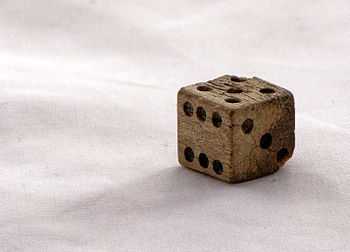Measurement error

Measurement is rarely, if ever, without error. This error can be from several different sources. In statistical analysis, some modeling of measurement error can be incorporated.
Measurement error is generally thought to consist of:
- Systematic error
- Random error
So, a measured score consists of:
Sources of systematic measurement error include:
- Non-sampling error
- e.g., instrument reliability and validity
- e.g., paradigm error - a scientific approach privileges and preferences study of measurable phenomena
- Sampling error
- e.g., non-representative sample
- Researcher bias
- e.g., a researcher is keen to confirm his/her preferred theory and this influences decisions e.g., about what to measure and how
- Respondent bias
- e.g., participants are influenced by social desirability, yea-saying, nay-saying etc.
See also
- Observational error (Wikipedia)
This article is issued from Wikiversity - version of the Thursday, March 07, 2013. The text is available under the Creative Commons Attribution/Share Alike but additional terms may apply for the media files.